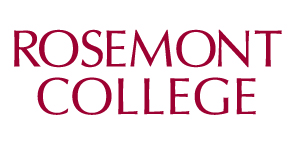Degree Requirements
Major Requirements for a BA in New Media Communication
The Bachelor of Arts degree in New Media Communication requires 120 credits. Once chosen a concentration, student will complete 12 credits of concentration focused courses and 15 credits of other required supporting courses.
In addition to meeting course requirements for the major, all students must also fulfill the General Education requirements for the Undergraduate College.
Required Courses (18 credits)
This course is designed to provoke critical thinking about the structure, content, and effects of mass communication in a digital age. We will also explore the role of mass media within our society and the broader cultural influence of mass media industries such TV, film, radio and more. (3 credits)
This course will introduce students to the form, style, and content found in written forms of multimedia. Students will learn the basics of writing for print, broadcast journalism, advertising, new media and basis of storytelling. Prerequisite: COM 0120 (3 credits)
This course provides students with essential knowledge of theoretical and methodological research principles, techniques, and applications required and found in New Media. Students will also be introduced to the elements of diffusion research and how it applies to New Media. Students will have a hands-on experience utilizing digital tools for both quantitative and qualitative research. (3 credits)
Practical application of the theory. Requires approval of the instructor and the student’s advisor. Offered fall and spring semesters. Prerequisite: instructor and advisor consent. (3 credits)
The Senior Project in Communication combines a particular academic interest of the student and adds a practical component to it, as a bridge to a post-college career in communications. It will involve research about a particular area of interest, production of a magazine prototype, film, public relations campaign, extended piece of journalism or nonfiction in any variety of media (print, audio, video.) Students in the Senior Project course will meet as a group and individually throughout the semester to work on their projects. Offered spring semester. (3 credits)
Digital Media Track (6 credits)
This course will follow the basis of journalism and introduce students to the fundamentals of news judgment, reporting and writing with a purpose of gaining a deeper understanding of the art of multimedia storytelling. By using a combination of text, still photos, video, audio, graphics, mobile apps, social media and other emerging digital storytelling tools, students will build on the storytelling medium with research and analysis of current and evolving industry trends while producing multi-dimensional stories for a digital environment. (3 credits)
Analysis of audience data for traditional and new media. Learn basic fundamentals of digital metrics for television advertising, content marketing, broadcast, and other digital platforms. For media practitioners in this new environment, a familiarity with audience data, metrics and dimensions is essential. This course is an introduction to the methods for collecting, analyzing and utilizing audience data for traditional and new media. (3 credits)
Journalism Track (6 credits)
This course covers basic principles of journalism, including its history and culture, reporting, ethics and professional standards, news writing, This course covers basic principles of journalism, including its history and culture, reporting, ethics and professional standards, news writing, interviewing, sourcing, public access and records, and digital journalism, among other topics. Students learn about the nature of a journalism career and gather information that will serve as a foundation for their future journalism skills. (3 credits)
An examination of the ethical challenges that confront communication professionals, whether in print, broadcast or Internet journalism, public relations or advertising. Students learn to discern a wide variety of ethical issues concerning communication behavior, apply systematic ethical analysis to various communication situations and explain their analyses clearly. Prerequisite: COM 0120. (3 credits)
Public Relations Track (6 credits)
This course is an introductory course to the idea of new media and its relationship with public relations through multimedia and emerging new technologies in the field of PR. Explores the effects of new media on the fundamental theories, models, and practices of public relations. Studies how websites, blogs, citizen journalism, social media, direct-to-consumer communication, podcasting, viral marketing, and other technology-enabled changes are affecting interpersonal, small group, and mass media relationships. (3 credits)
This course is designed to help students develop professional writing skills expected of PR practitioners. The course covers the strategy and style of many forms of public relations writing, including press releases, media correspondence, media advisories, fact sheets and talking points. Students will learn to organize and plan their writing both with and without deadline pressure. (3 credits)
Required Supporting Courses (9 credits)
- One English Literature course
- One Creative writing courses
- Choose one English course or Creative Writing course
Required Courses for a Minor in New Media Communication
- COMM 0120: Introduction to New Media
- COMM 0180: Mass Communication and the Digital Age
- COMM 0263: New Media Writing
- COMM 0235: New Media Research Methods
- 6 credits selected from the required track courses
